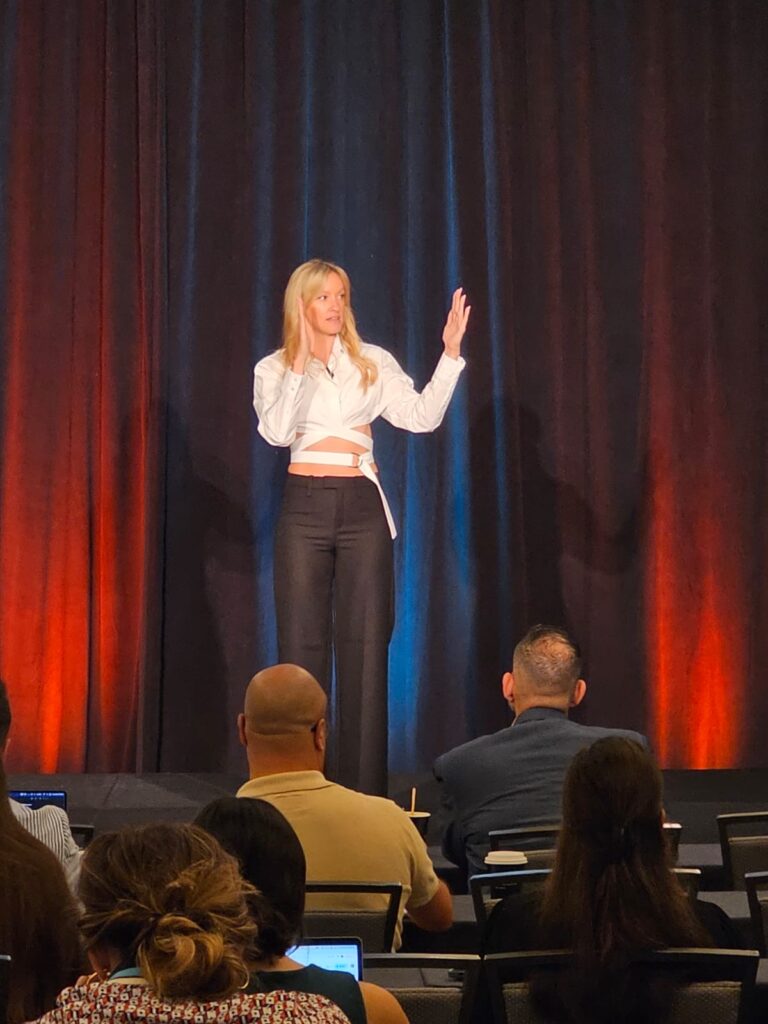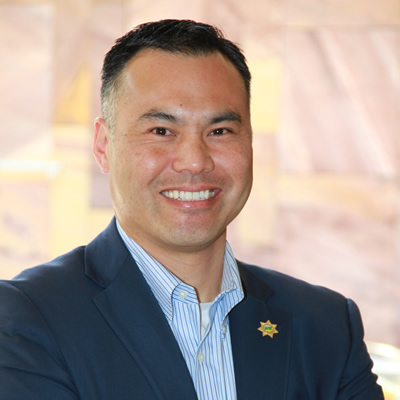Description
Select your payment option below. You can choose to pay for your annual membership in full or in two equal installments (50% due immediately and 50% due in three months).
If you prefer to listen to this article instead of reading it, here you go: In the aftermath of a massive natural disaster, it’s fairly
In order to achieve the mark of a true crisis leader, you must be able to effectively apply emotional awareness to your crisis communication strategy.
Before we discuss the Dylan Mulvaney and the Bud Light can controversy, a disclaimer: I’m not interested in discussing sides on this controversial issue. That
When a crisis strikes, an organization needs to respond with the right actions and the right communication, and both need to be done within the
Buffalo… Laguna Woods… Houston… Uvalde… Tulsa… We all recognize the names of these places. We are all aware of the incidents over the past five
Making timely and confident decisions in a crisis can get you through the storm and back on track. Shouldn’t you try to strategically leverage available
Are You Accounting for Emotional Management Within Your COVID Re-Entry Plans? On May 28th of this year, the Centers for Disease Control and Prevention (CDC) announced an
In a recent roundtable discussion with Crisis Ready® Community members, the conversation around best practices for strategic communication led to a moment in which we
If you don’t KNOW what happens when you walk into a room, then find out. If you don’t LIKE what happens when you walk into
My good friend Andres Calderon recently posted a piece on LinkedIn questioning the use of risk-based thinking in crisis readiness and preparedness. Within his piece,
Stay informed and at the forefront of your Crisis Ready Mindset, Skillset, and Capabilities. Subscribe to the Crisis Ready Newsletter.
Whether you’re an in-house professional, a crisis communication consultant, or an educator who teaches on the subject, the Crisis Ready Newsletter provides tailored content specifically for you.

Paul Damaren is the Global Director of Strategic Accounts for LRQA, a global Assurance Provider. Paul also holds the position of Chief Commercial Officer and Partner at StepUp Solution Services. Paul has worked as a Senior Executive in the Certification space for 10 years and has over 39 years’ experience in the Hospitality, Certification, Service, Retail agri-food and Technology sectors. Damaren is skilled in sales, marketing, certification, operations and software applications and he possesses an MBA from McGill University.
Mr. Damaren has worked with many companies across multiple sectors in supporting their food safety, supply chain, health & wellness, front & back of house operations, brand protection, quality, environmental, health & safety, GMP/GDP compliance, automotive, aerospace, medical, information security and technology requirements.
Paul was formerly a board member and Treasurer for the Ontario Food Protection Association (OFPA) and is a currently an Advisor & Council Member with The GW University School of Business and the Crisis Ready Institute.
Before working in the Certification industry, Damaren was a professional Chef/consultant for 20+ years working in major hotel chains, restaurants, private golf courses and food service organizations. Further, Damaren was a member of the National Canadian Federation of Chefs and Cooks (C.F.C.C.) for 14 years, member of the Region of Waterloo Culinary Association (R.W.C.A.) for 14 years, President of R.W.C.A. (Region of Waterloo Culinary Association) for 3 years, special Events chairman - R.W.C.A. – 1998 – 2000 and National Culinary Ambassador to Russia for 5 years.
Paul’s wealth of knowledge and experience across the span of our services supports his commitment to the ongoing success of our customers.
As Executive Vice President and Managing Director in the BCW Public Affairs and Crisis practice, Licy drives healthcare and social impact policy and strategy, and helps shape strategic direction on diversity, inclusion and belonging for the firm and its clients across North America, in public and corporate affairs, government relations, communications, crisis and reputation management. Licy also leads the BCW Healthcare Team in Washington, D.C.
An expert in public affairs, policy and diversity and inclusion, with over twenty five years of experience at the international, national, state and local levels across the nonprofit, philanthropic, corporate and government sectors, Licy is an accomplished, values-driven leader with unparalleled experience in developing and leading integrated public affairs campaigns combining strategic communications, public relations, political/legislative initiatives, policy, coalition building, grassroots efforts and advocacy.
Before joining BCW, Licy built and lead a nationally recognized minority owned strategic public affairs and communications firm, served as Health Practice Chair and Principal at The Raben Group, was the Chief Executive Officer of The AIDS Alliance for Children, Youth and Families, and managed and helped set the leadership direction for strategic policy, communications, and advocacy investments in executive and senior government affairs roles for the American Cancer Society and the nation’s Community Health Centers.
Before joining the private sector, Licy was domestic policy advisor to U.S. Congressman Barney Frank and served in several capacities in the Office of Senator Edward M. Kennedy. During his extensive tenure in Washington, D.C., Licy has played a leading role in efforts to draft, shape and enact legislation and policy to improve the public health, health care safety net and the lives, livelihoods and well-being of the nation’s disadvantaged and underserved communities.
Licy also has worked with Moet Hennessey to drive diversity and inclusion on Wall Street and corporate America. He has partnered with Vice President Al Gore, senior government officials, scientists, NGOs and activists, on global climate change impact and sustainability across Africa. And he was appointed by Republican and Democrat governors to oversee the conservation, preservation and management of a prominent U.S. national historic landmark.
Licy is a graduate of Duke University and holds a certificate in public health leadership in epidemic preparedness and management from the University of North Chapel Hill—School of Public Health and Kenan Flagler Business School, and is the recipient of multiple industry awards and citations for his leadership, policy and public affairs acumen, including being named to The Hill Newspaper list of most influential leaders in Washington, D.C. consecutively over the last ten years. As a global citizen, Licy has lived in Turkey and Spain, and is fluent in Spanish and Cape Verdean Portuguese.
As we get this membership off the ground, we’re looking to our 2022 inaugural members to be a part of helping us strengthen and tailor this program to meet your needs.
This will involve regular communication with the Crisis Ready Team to provide feedback, share requests for additional ways to support you and your business, etc.
Each Crisis Ready Course is designed to help you strengthen your Crisis Ready® Expertise. Course subjects will include crisis communication, establishing governance, crisis leadership, storytelling for crisis comms, DEI integration, and more.
Each course is complete with:
$12,500.00 USD
Select your payment option below. You can choose to pay for your annual membership in full or in two equal instalments (50% due immediately and 50% due in three months).
Select your payment option below. You can choose to pay for your annual membership in full or in two equal installments (50% due immediately and 50% due in three months).
If you:
... then you will benefit from Crisis Ready Institute's 1:1 coaching and support. This opportunity is retainer-based and is offered exclusively to our consultant and small agency members.
This offering provides personalized coaching and support in:
Monthly retainer*
Hours of support per month
$2,500 USD
Up to 5
$5,000 USD
Up to 10
* This is in addition to the annual membership fee.
Click below...
Have experts review your crisis comms program prior to the course
1:1 Consultation time with a member of the Crisis Ready Team, post the course (per hour)
We're excited to be sharing Sustained Resilience: Building Tomorrow's Leaders with you. Fill in the form below to gain access to demo this course. Once you fill in this form, we'll send you an email with further instructions.
Thank you for the honor of considering this important course for your curriculum. We look forward to sharing in the experience with you!

Between the demands of our social impact economy, the divisiveness of society and the many other challenges in front of us, embedding a crisis ready culture is more important than ever before. Having a team that is trained, poised, and empowered to effectively respond to risk, controversy and other threats, will strengthen stakeholder relationships and increase the brand equity of your organization. This is a powerful opportunity. The Crisis Ready® Coaching Program is specifically designed to equip your team with the tools needed today for launching into a stronger tomorrow.
From best practices around re-opening, to diversity and inclusion, to managing through the impacts that 2020 has left on your business, the Crisis Ready® Coaching Program is designed to support you through the challenges of today, in order to recover faster and stronger for an even better tomorrow.
COVID-19 continues to affect a great majority of professionals and businesses, leaving them blindsided by its impact and all the uncertainty that came with it. The Crisis Ready® Coaching Program provides you with access to a diverse group of experts, each with unique areas of insight, to help provide you and your team with strengthened foresight to better anticipate and plan for both the risks and opportunities that lay ahead of us all.

Licy Do Canto, is a veteran of public policy, corporate strategy, health care communications and diversity and inclusion, is managing director of APCO Worldwide’s Washington D.C. office headquarters and mid-Atlantic region lead. Licy is also a Global Advisory Council (GAC) member here at the Crisis Ready Institute and a highly recognized African-American public affairs, lobbyist and communications strategist— recognized by TheHill newspaper for the 11th consecutive year as one of the most influential leaders in Washington, DC.
As Executive Vice President and Managing Director in the BCW Public Affairs and Crisis practice, Licy drives healthcare and social impact policy and strategy, and helps shape strategic direction on diversity, inclusion and belonging for the firm and its clients across North America, in public and corporate affairs, government relations, communications, crisis and reputation management. Licy also leads the BCW Healthcare Team in Washington, D.C.
An expert in public affairs, policy and diversity and inclusion, with over twenty five years of experience at the international, national, state and local levels across the nonprofit, philanthropic, corporate and government sectors, Licy is an accomplished, values-driven leader with unparalleled experience in developing and leading integrated public affairs campaigns combining strategic communications, public relations, political/legislative initiatives, policy, coalition building, grassroots efforts and advocacy.
Before joining BCW, Licy built and lead a nationally recognized minority owned strategic public affairs and communications firm, served as Health Practice Chair and Principal at The Raben Group, was the Chief Executive Officer of The AIDS Alliance for Children, Youth and Families, and managed and helped set the leadership direction for strategic policy, communications, and advocacy investments in executive and senior government affairs roles for the American Cancer Society and the nation’s Community Health Centers.
Before joining the private sector, Licy was domestic policy advisor to U.S. Congressman Barney Frank and served in several capacities in the Office of Senator Edward M. Kennedy. During his extensive tenure in Washington, D.C., Licy has played a leading role in efforts to draft, shape and enact legislation and policy to improve the public health, health care safety net and the lives, livelihoods and well-being of the nation’s disadvantaged and underserved communities.
Licy also has worked with Moet Hennessey to drive diversity and inclusion on Wall Street and corporate America. He has partnered with Vice President Al Gore, senior government officials, scientists, NGOs and activists, on global climate change impact and sustainability across Africa. And he was appointed by Republican and Democrat governors to oversee the conservation, preservation and management of a prominent U.S. national historic landmark.
Licy is a graduate of Duke University and holds a certificate in public health leadership in epidemic preparedness and management from the University of North Chapel Hill—School of Public Health and Kenan Flagler Business School, and is the recipient of multiple industry awards and citations for his leadership, policy and public affairs acumen, including being named to The Hill Newspaper list of most influential leaders in Washington, D.C. consecutively over the last ten years. As a global citizen, Licy has lived in Turkey and Spain, and is fluent in Spanish and Cape Verdean Portuguese.

Recognized globally as an expert, thought leader and visionary in the field of crisis communication, Melissa Agnes has worked with global players, including NATO, the Pentagon (DoD), Ministries of Foreign Affairs and Defense, financial firms, technology companies, healthcare organizations, cities and municipalities, law enforcement agencies, aviation organizations, global non-profits, and many others.
In 2020, Melissa founded Crisis Ready Institute, a public benefit corporation dedicated to teaching advanced crisis communication skills.
She's currently passionate about providing dedicated support to crisis communication consultants. Through her programs, she’s focused on helping them strengthen their crisis communication skills and credibility in the market, and supporting them in growing and scaling their business. The work they do is important and she's passionate about helping them amplify the positive impact they have in the world.
Her book, Crisis Ready: Building an Invincible Brand in an Uncertain World, is taught in dozens of universities around the world, including at Harvard University; is ranked amongst the leading crisis management books of all time, by Book Authority; and was named one of the top ten business books of 2018 by Forbes.
Melissa is the creator of the Crisis Ready® Model, which is recognized and being taught as leading industry best practice in the fields of crisis management and crisis communication.
As an in-demand international keynote speaker and a TEDx alumna, Melissa has traveled the world helping organizations and leaders further strengthen their crisis ready mindset, skills and capabilities.
In 2019, Melissa founded the Crisis Ready® Community, a space for professionals to come together to support one another, collaborate and strengthen their crisis ready skills.
Melissa sits on the Board of Directors for ZeroNow, a non-profit committed to ending harmful events in schools.
She also sat on the Board of Trustees for D'Youville University for four years until the end of her term, where she also serves as a visiting scholar for the course she co-created and co-teaches on Crisis Leadership.
Passionate about serving law enforcement and bridging the trust divide between agencies and the communities they serve, Melissa is a former member of the International Association of Chiefs of Police (IACP). In 2021 she co-chaired a committee tasked with developing a strategy and plan of action to begin resolving the trust crisis in the U.S.
In 2019 and 2020, Melissa sat on the panel tasked with developing the International Standard for Crisis Management— ISO 22361, Guidelines for developing a strategic capability.
Born and raised in Montreal, Quebec, Melissa currently lives in New York City and enjoys weight-lifting, sailing, and exploring new cities, countries, and cultures.

Erick Anez is the Global Head of Business Resilience at Finastra. Erick is a proven leader with well over a decade of experience leading change and transformation in the Operational Resilience field.
His hands-on approach focuses on operational learning, culture, and reputational management. Erick holds a Bachelor of Emergency & Homeland Security, Graduate studies in Security and Disaster Management, is a Certified Business Continuity Professional (CBCP), Certified Risk Management Professional (CRMP), graduate of the FEMA institute in Incident Management and Command, and is a respected member of Public-Private partnerships within the Department of Homeland Security (DHS), Federal Bureau of Investigations (FBI) and the Federal Emergency Management Agency (FEMA).
Some of his most notable achievements in the field include leading the private sector response to Hurricane Maria as well as working with the Department of Homeland Security (DHS) in Continuity of Operations (CCOP) projects for mission-critical facilities in the United States. Erick has also trained with the Center for Disease Control (CDC) in Infectious Disease Planning and community response, including Point of Dispensing initiatives.
From 2016 to 2019, Erick held several roles at Crowley and, most recently, was the company’s Managing Director of Safety & Resilience. During this time, he was responsible for resilience operations supporting all business segments as well as leading the organization’s safety culture improvement journey. At Crowley, he led the Occupational Health & Safety, Business Continuity, and Crisis Management teams.
Before joining Crowley, Erick held similar roles at Southwest Gas and Third Federal Savings & Loan.

Founder and Principal, One Thirty Nine Consulting
Global Advisory Council Member, Crisis Ready® Institute
Aaron Marks is the founder and principal of One Thirty Nine Consulting, providing services for small and large businesses in Risk, Crisis, and Consequence Management.
Supporting both domestic and international clients, he provides operational and subject matter expertise in readiness and preparedness, crisis and incident management, and business and operational continuity for complex systems and organizations.
Aaron has provided in-depth review, assessment, and analysis for technology, policy, and operational programs for clients in healthcare, critical manufacturing, and entertainment and hospitality, as well as for state, local, tribal, territorial, and federal governments in the United States, Europe, and the Middle East. He is a recognized authority on the application of nontraditional techniques and methodologies to meet the unique requirements of training, evaluation, and analytic games and exercise.
Prior to entering the readiness and preparedness field, Aaron was the Director of Operations for a commercial ambulance and Emergency Medical Services (EMS) provider in western New York State where he participated in the integration of commercial EMS and medical transportation resources into the local Trauma System.
During his 30-year career, Aaron has worked in almost every aspect of EMS except fleet services. This includes experience in Hazardous Materials and Tactical Medicine, provision of prehospital care in urban, suburban, rural, and frontier environments, and acting as a team leader for both ground and aeromedical Critical Care Transport Teams.
Aaron is a FEMA Master Exercise Practitioner and received a B.A. in Psychology from Texas Tech University in Lubbock, Texas, and a master’s degree in Public Administration with a focus in Emergency Management from Jacksonville State University in Jacksonville, Alabama. He is also a Nationally Registered Paramedic and currently practices as an Assistant Chief with the Amissville Volunteer Fire and Rescue Department, Amissville Virginia.

Chris is the 11th Police Chief of the Mountain View Police Department, located in the heart of Silicon Valley. For more than 25 years, he has served the Mountain View community, and as the department’s leader, is passionate about maintaining MVPD’s role as a progressive law enforcement organization in the 21st century.
Chris is an internationally recognized speaker and columnist on the areas of crisis communications, critical incident management, leadership, and engagement with stakeholder groups. In his time with Mountain View PD, Chris has held a variety of investigative, tactical, and leadership roles, serving in every division in the organization. He is a graduate of the Harvard Kennedy School of Government Senior Executives in State and Local Government program and has a master’s degree in eBusiness Management from Notre Dame de Namur in Belmont, CA.
Chris also serves in several leadership positions on multiple boards, including as president on the Government Social Media Leadership Council and committee member on the IACP's Professional Standards, Ethics, and Image Committee. Previously, Chris served as a board member for the Peninsula Conflict Resolution Center and two terms as a commissioner on the City of San Mateo Community Relations Commission.
You can connect with him on Twitter @Chief_Hsiung or LinkedIn.

Ashley is a Brand and Marketing Strategist who partners with CEOs, executives and solopreneurs to grow their personal and professional brands. After spending over a decade working in strategic communications for multimillion dollar brands and startups, Ashley knows what truly drives conversations, builds mutually beneficial relationships between organizations and their stakeholder groups and attracts strong strategic partnerships.
Ashley has helped organizations and leaders increase employee awareness and overall understanding of the company vision. She has strong experience / knowledge of social media tools and techniques for driving awareness, reputation and brand—and is known for advancing a company's messaging in the marketplace by growing the following of now multiple multimillion dollar brands and startups.
Ashley has served as the Editor of monthly all employee publications by managing the planning, writing and production. She is an integral part of new product launches and is frequently engaged to train entire sales teams along with channel / distribution partners on new product launches. In addition to her extensive experience, Ashley is a trained business coach.
Ashley holds a BA in Global Business Management from the University of Phoenix.
Stay informed and at the forefront of your Crisis Ready Mindset, Skillset, and Capabilities. Subscribe to the Crisis Ready Newsletter.
Reviews
There are no reviews yet.